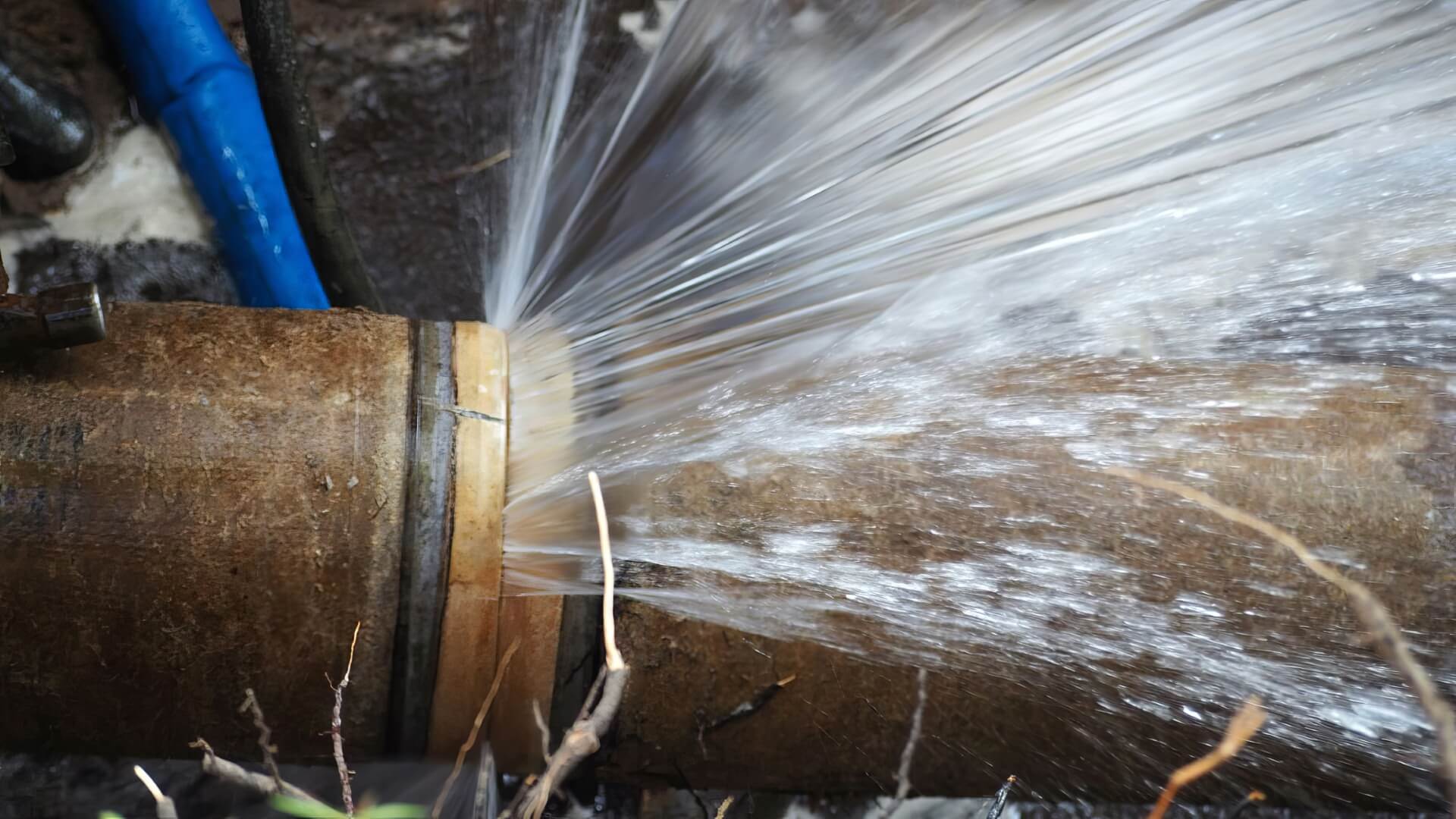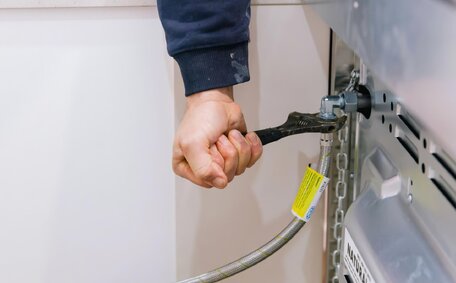Understanding Your Gas Appliance Energy Usage
In Australian homes, gas appliances like heaters, hot water systems, and cooktops account for around 40% of energy use. Assessing how you use gas appliances will help boost your home’s energy efficiency and lower energy bills.
Monitoring when and how often you use your gas heater, cooktop, and hot water system can reveal opportunities to improve efficiency. For example, ensuring your gas heater is properly sized for the area it is heating or minimising cooking time and using techniques to use less gas, such as not frequently opening the oven door, can help optimise usage.
Electric appliances are generally more energy-efficient and consume less energy than their gas counterparts. Small but effective changes to your gas appliance usage can lower household expenses and yield considerable savings over time. We make sure to provide tailored advice on efficiency upgrades to suit your needs and budget, guiding you to save energy and reduce costs.
Improving Insulation Around Gas Appliances
Properly insulating gas appliances and air conditioners can enhance efficiency similar to the benefits provided by solar power systems. Insulation stops conditioned cool air from escaping, ensuring your heating cooling system doesn’t need to work as hard.
Replace old insulation with gaps or tears around gas appliances to optimise your gas electric consumption. If your insulation is missing or damaged, consider upgrading to R3 rated insulation for superior thermal performance.
Sealing gaps and cracks around your windows doors with high-quality caulking will complement insulation upgrades and keep your house warm and snug. Seal ductwork joints to minimise energy loss from leaks. These measures prevent waste while allowing your insulation to work much more effectively.
We recommend contacting a licenced professional to inspect your insulation and ensure it meets current standards. They can also advise on suitable materials and proper installation methods for your home.
Installing Programmable Thermostats
Using programmable thermostats helps manage home energy by setting temperatures for specific times.
Program your thermostat to turn off heating when the house is empty and use a slow cooker instead of an oven to save energy. This smart habit helps to use up less resources whilst conserving money and energy but also enhances your home’s eco-friendliness. Programmable thermostats, which are more efficient than gas dials, can help save on your gas usage for heating by up to 15%.
When installing a programmable thermostat, engaging a professional gas fitter ensures compatibility with your existing gas heating system. Our expert gas fitters can recommend and install the ideal programmable thermostat, boosting your system’s efficiency.
Upgrading to a modern programmable thermostat enables convenient heating control and is a simple way to start saving money on your energy costs.
Wrapping Pipes to Prevent Heat Loss
Insulating gas pipes can reduce energy waste by up to 45% and boost home efficiency. Uninsulated pipes lose heat rapidly, driving up gas usage. Insulating pipes helps maintain cold water temperatures, reducing the energy required for your washing machine and potentially cutting standby losses by 25-45%.
Fibreglass and foam sleeves are user-friendly insulation materials for DIY installation. Ensure you carefully measure pipe diameters first to get a snug fit. Insulating accessible pipes leading to your heater can significantly cut standby losses by up to 45%.
For tricky pipe runs in tight spaces, perhaps you’re pondering, 'what can I do without professional help?' Rest assured, our team at Beecroft Plumbing is here to assist. Our licenced gas fitters have the expertise to properly insulate complex pipe configurations behind appliances such as your washing machine, sealing joints professionally to optimise heat retention.
Enhancing old insulation or installing new pipe wraps on cooking appliances like your gas stovetop delivers excellent returns through energy savings. We also stock higher grade insulation products to suit your specific requirements.
Replacing Old Appliances with Efficient Models
Transitioning from an older model to one of the most energy efficient electric hot water systems available can lead to significant cost savings. Replacing a 20-year-old gas hot water system with a modern heat pump can save you more than $1,000 a year.
Check the energy rating and star efficiency when selecting new appliances for the best energy savings. A higher star rating means youre using less energy overall and indicates greater energy efficiency, allowing you to use less energy to perform the same tasks. Replacing gas cooktops with induction cooktops and traditional heating systems with reverse cycle air conditioners or heat pump water heaters can be more economical and efficient.
Choosing energy efficient appliances for your home’s needs is not only key to lowering operating costs but can also significantly save more on your energy bills. We stay up-to-date on the latest energy ratings, running costs and government rebates available to help you affordably upgrade outdated appliances.
Transitioning to electric appliances can significantly reduce your carbon footprint, lower energy bills, and cut emissions. Transitioning from gas heaters to electric alternatives, including induction cooktops, offers financial and environmental benefits. Contact our team to explore your upgrade options tailored to your household.
Exploring Electric Alternatives
With rising natural gas prices, many Australians are considering switching from the gas network to cheaper electric alternatives for appliances traditionally fueled by gas.
An Arena report found that replacing gas hot water systems with electric heat pumps or solar hot water can cut energy bills by $490 to over $1,090 per year. Heat pumps use 60% less energy than heating water with gas or old electric resistive hot water systems.
Electric induction cooktops are also proven to be more energy efficient than their gas counterparts by up to 70%, showcasing the ways electricity can be more cost-effective than gas. Other electrical alternatives like reverse-cycle air conditioner systems are similarly more cost-effective than traditional methods.
Switching from gas to efficient electric appliances can save households significant amounts on energy bills and reduce emissions. Our Beecroft Plumbing team, with extensive experience, assists homeowners in selecting ideal electrical appliances to replace gas stoves.
We provide clear steps can take to streamline the transition from gas, offering tailored advice for hassle-free appliance upgrades and sharing insights into how switch seamlessly. From applying for sustainability rebates to safely capping gas ports and optimising your new electrical appliances, we ensure your transition is smooth, showcasing easy ways to save money while maintaining safety and reliability.
To explore the switch to more affordable and sustainable electric alternatives for your household gas appliances, contact our team at Beecroft Plumbing today for personalised recommendations.
Taking Advantage of Rebates and Incentives
Transitioning gas appliances to more energy efficient or electric alternatives can seem costly upfront. However, Australian federal and state governments offer generous rebates and incentive schemes to make these upgrades more affordable.
Federal initiatives such as the Sustainable Household Scheme provide rebates for upgrading from old gas appliances. Receiving up to $1,000 when installing efficient pump hot water systems or $600 for induction cooktops is possible through certain rebate programs. Most states have additional rebates on top.
Under initiatives such as Sustainability Victoria programs, alongside the ACT Government’s Energy Efficiency Improvement Scheme, households can access discounts on efficient appliances. They also provide bonus rebates for low-income families struggling with energy costs.
Additionally, the NSW government provides a variety of rebates. Through Service NSW, households can obtain rebates up to $3,500 for upgrading space heaters, hot water systems and other appliances under the Energy EasyUpgrade programme.
Beecroft Plumbing helps clients take full advantage of all available rebates and incentives. Our gas fitters guide you through the application process to maximise savings. We also provide recommendations aligned with subsidy eligibility criteria.
Replacing inefficient gas appliances is now more affordable than ever thanks to generous government schemes. Contact our team today to explore your upgrade options and find out which rebates you may be eligible for.
Planning Future Upgrades and Modifications
When considering home energy upgrades, adopting a long-term perspective, especially regarding appliances, is crucial. Future planning allows for gradual and cost-effective improvements as needs evolve and technologies progress.
We recommend developing a multi-year blueprint mapping out your ideal upgrades. This might involve replacing old appliances first, then addressing insulation, installing solar panels down the track, switching remaining gas appliances to electric models when financially viable, and optimising your next heating/cooling systems.
Timing upgrades in stages lets you make the most of current rebates and maximises savings from each upgrade. It also spreads costs over your timeframe.
Beecroft Plumbing helps craft customised long-term efficiency roadmaps to suit your objectives, budget and home. We use our decades of industry experience to provide trusted recommendations on ideal future upgrade timings to save you the most money.
Get in touch today to discuss your situation and priorities. We’ll assess your home and provide professional advice on planning upgrades for a more sustainable home and modifications for superior comfort, costs and sustainability over the years ahead.





